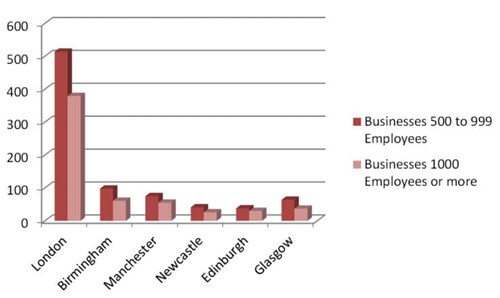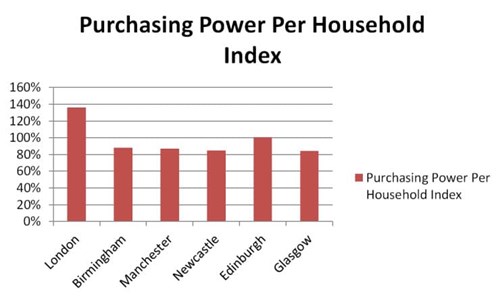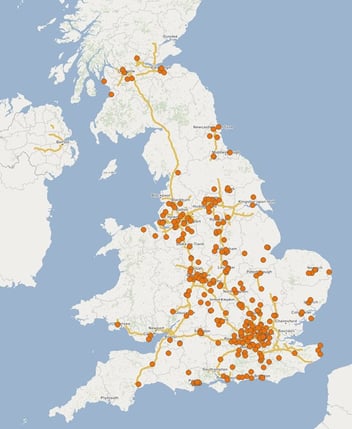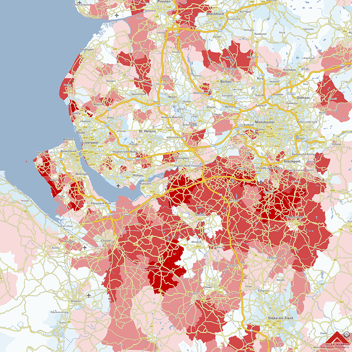January 15, 2014
London’s disposable income per household is 36% higher than the UK’s national average. The city has a developed infrastructure, a large diverse population, a high number of large scale businesses and various cultural and tourist attractions, which all contribute to the wealth of the city.
These areas are typically made up of professionals of different ages striving to work in large companies and focussed on developing their careers. As we can see in the graph below London contains almost 900 companies with over 500 employees in comparison to the other cities in the UK which all contain fewer than 200, and some less than 100. These are heavily concentrated in the centre of London, all within a reasonable commute and travel distance to the high wealth areas mentioned before.

How does London compare to some of the other major UK cities?
Here’s how the average disposable income matches up in some of the other major UK cities in comparison to London. The only other city selected as an example that has an above average disposable income is Edinburgh, and it’s only marginal.
Impacts on the business model
From what has been outlined in this blog and through our experience gained from working on a range of different projects, we know that London behaves very differently from the rest of the country. Some business models have to be adjusted to cater for the extremely dense population of the city and its widely varying demographics.
Also, if your business has started in London, it’s worth taking into account how moving away from the city will affect the business model. Increased drive times, accessibility and lower levels of disposable income are all examples of this.







